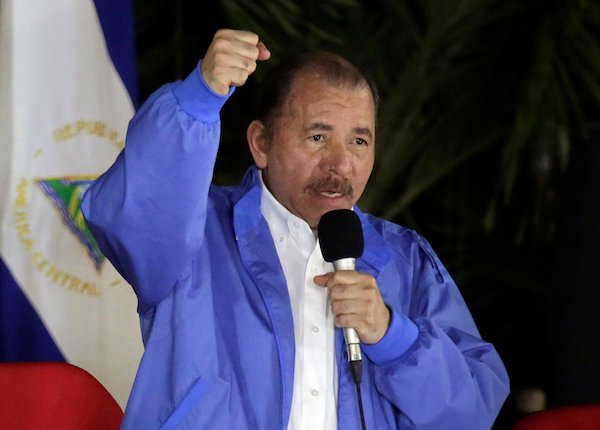
PROSPECT HEIGHTS — In what is the latest move to suppress the Catholic Church in Nicaragua, the government has rescinded the legal status and seized the assets of the nation’s Caritas branches and two Catholic universities, essentially shutting them down.
A ministerial agreement published in the March 7 edition of the Nicaraguan government’s official newspaper, La Gaceta, states that the legal status of Universidad Juan Pablo II and Universidad Cristiana Autónoma de Nicaragua have been canceled “for non-compliance with the laws that regulate them.”
Separate ministerial agreements, published in an edition of La Gaceta, state that both Caritas in the Diocese of Jinotega (Caritas Jinotega) and the larger Caritas Nicaragua “agreed to the Voluntary Dissolution and liquidation … by unanimous decision of its members.”
However, even though the published ministerial agreements list the decisions as voluntary, local media outlets are reporting that the organizations didn’t have a choice because of the insurmountable obstacles imposed on them by the dictatorship led by Nicaraguan president Daniel Ortega. That includes a 2022 law that highly restricts the abilities of nongovernmental organizations.
The closure of the Caritas Jinotega headquarters was approved on Dec. 22, 2022, and the closure of Caritas Nicaragua headquarters on Jan. 31, according to the ministerial agreements. Each ministerial agreement was signed by María Amelia Coronel Kinloch, minister of the interior.
Neither Caritas organization, nor Caritas Internationalis, could be reached for comment.
The recent moves against the two universities and Caritas follows the imprisonment of Bishop Rolando Álvarez of Matagalpa, Nicaragua, who, after refusing exile, was sentenced on Feb. 10 to 26 years in prison, stripped of his citizenship and given a large fine on charges of treason, undermining national integrity, and spreading false news.
The day before Bishop Álvarez was sentenced, 222 exiled Nicaraguans arrived on U.S. soil. Among them were Father Ramiro Tijerino, who before he was exiled was rector of the Universidad Juan Pablo II.
Ortega’s crackdown on the Catholic faith in recent years has also included the arrests of several priests, expulsion of missionaries, shut down of Catholic radio stations, the closing of a different Catholic university, and even the banning of a Catholic procession and pilgrimage in the capital city of Managua last August. Many people associated with the church, including clergy, have fled.
The charges against Universidad Juan Pablo II and Universidad Cristiana Autónoma de Nicaragua in the ministerial agreement include not reporting their financial statements for more than two years. Specific charges include “not being accredited in the quality indicators; not reporting their Financial Statements and Boards of Directors; not submitting clarifications on equity, fixed assets, income, expenses, execution of funds; increases and decreases in accounts without justification, as required by law.”
The ministerial agreement continues that the universities were given an extension from Jan. 13, 2022, to be brought up to date in the aforementioned, but did not comply. These actions have “hindered the control and surveillance of the General Directorate of Registration and Control of Non-Profit Organizations of (the Nicaraguan Ministry of the Interior).
It also mandates that university officials must deliver their academic registries — information on students, professors, careers, study plans, enrollment databases, and grades — to the National Council of Universities (CNU). The CNU will proceed to relocate all students that were enrolled in the universities to different institutions, according to the ministerial agreement.
In a March 8 statement, Universidad Juan Pablo II officials said they were surprised and saddened by the cancellation of their legal status, adding that the university “remains attentive to the guidelines for the transition to the corresponding government authorities and initiates the processes as established.”
“We will be in permanent communication with our educational community, reporting the procedures to follow in the orderly transfer of our house of study to the authorities,” the officials said.
